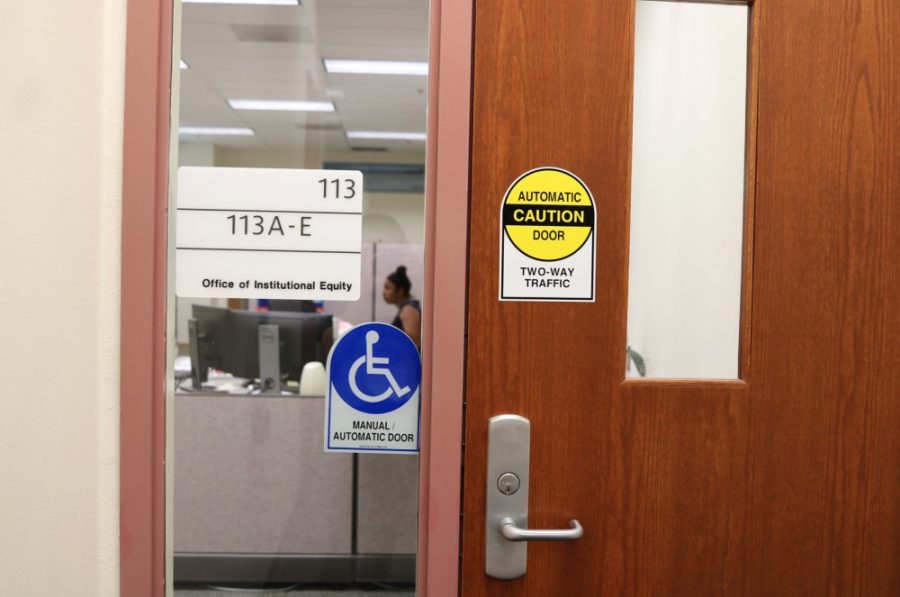University students across the country have heard of Title IX. Information about the law appears in their inboxes, is mentioned at orientations and impacts everything from on-campus jobs to collegiate athletics. But between the law itself, the politics surrounding it and the actions of the University of Arizona, it can be difficult to parse through information regarding Title IX and understand how it impacts college students and university life.
Here are some common questions about Title IX and their answers.
What is Title IX?
Title IX is a federal law passed in 1972 as a part of the Education Amendments. The law states: “No person in the United States shall, on the basis of sex, be excluded from participation in, be denied the benefits of, or be subjected to discrimination under any education program or activity receiving Federal financial assistance.”
Title IX applies to any U.S. educational institutions that receive federal funding, which includes the University of Arizona.
What does Title IX encompass at the UA?
Like all universities that receive federal funding, Title IX encompasses and applies to almost all parts of campus life. According to the U.S. Department of Education, programs and areas that must be conducted in equal manner include “recruitment, admissions, and counseling; financial assistance; athletics; sex-based harassment; treatment of pregnant and parenting students; discipline; single-sex education; and employment.”
RELATED: What “Test, Trace, and Treat” means for campus reentry so far
In order to comply with Title IX, universities must also have a policy against sex discrimination, hire a Title IX coordinator and have (and make known) procedures for students to file complaints of sex discrimination.
The UA’s former Title IX coordinator, Ron Wilson, left his position at the UA in February. Currently, Mary Beth Tucker is standing in as interim Title IX coordinator. Students can contact her or other Title IX representatives here.
How does Title IX impact athletics?
In order to be in compliance with Title IX, collegiate athletic programs must provide equal opportunity for men and women athletes in three areas: the ability to participate in sports, that students receive scholarships proportionate to their participation in athletics and equal treatment in regards to provisions. According to the NCAA, provisions include sports equipment, areas to play and medical treatment and equipment.
What are the university’s policies in handling rape or sexual assault?
Title IX requires the UA to investigate any instance of sexual harassment and sexual violence even if the victim is not interested in pressing charges and even if a criminal investigation is in progress. According to the UA’s Title IX website, the university must “promptly investigate to determine what occurred and then take appropriate steps to resolve the situation.”
It is because of Title IX that the UA’s employees are mandatory reporters. If someone who works for the UA hears or is told about an instance of sexual harassment or assault, they must report it to the proper authorities so that the university can take proper action.
If the investigation conducted by the UA finds that a student is guilty of the aforementioned violations, the dean of students will decide how the student will be punished.
How is Title IX going to change this year?
On August 14, the new Title IX guidelines, spearheaded by Secretary of Education Betsy DeVos, will go into effect across the nation. DeVos’s new guidelines largely overturn Obama-era requirements which were mandated in order to lower the instances of sexual violence on campuses.
One of the main changes the Obama administration made was the requirement of Title IX investigations to use the “preponderance of the evidence” standard. This, as opposed to the “clear and convincing evidence” standard, requires a lower degree of certainty that the act in question happened in order for wrongdoing to be found.
RELATED: What are the bounds of student speech on social media?
Other changes DeVos brings to Title IX include cross-examining the victims of sexual assault or misconduct and narrowing the definition of sexual assault or harassment. Students can read more about these changes and how they’ll impact the UA here.
Where can students go if they are the victim of sexual assault, harassment or misconduct?
The Title IX Office instructs students who have been the victim of rape or sexual assault to call 911, talk to a UAPD officer about the incident and visit Campus Health or Planned Parenthood in order to be tested for sexually transmitted diseases.
The UA Title IX website has places where students can file a complaint of harassment or misconduct against other students or UA employees.
Follow Katie Beauford on Twitter









